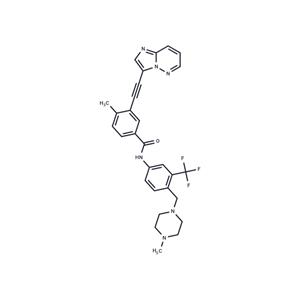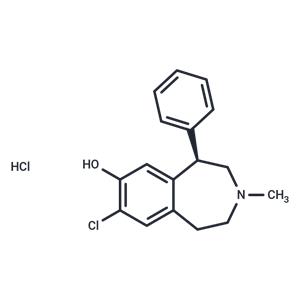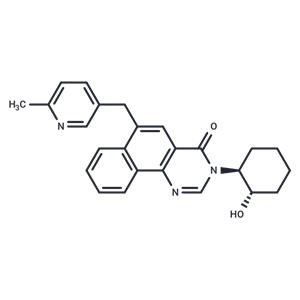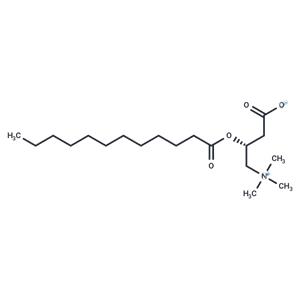
Ponatinib NEW
| Price | $50 | $64 | $100 |
| Package | 10mg | 50mg | 100mg |
| Min. Order: | |
| Supply Ability: | 10g |
| Update Time: | 2024-11-19 |
Product Details
| Product Name: Ponatinib | CAS No.: 943319-70-8 |
| Purity: 99.74% | Supply Ability: 10g |
| Release date: 2024/11/19 |
Product Introduction
Bioactivity
| Name | Ponatinib |
| Description | Ponatinib (AP24534) is an orally available, multitargeted kinase inhibitor with IC50 values of 0.37 nM (Abl), 1.1 nM (PDGFRα), 1.5 nM (VEGFR2), 2.2 nM (FGFR1), and 5.4 nM (Src). |
| Cell Research | Ba/F3 cell lines were distributed in 96-well plates (4 × 10^3 cells/well) and incubated with escalating concentrations of AP24534 for 72 hr. The inhibitor ranges used were: 0–625 nM for cells expressing BCR-ABL and 0–10,000 nM for BCR-ABL negative cells. Proliferation was measured using an MTS-based viability assay. IC50 values are reported as the mean of three independent experiments performed in quadruplicate. For cell proliferation experiments with CML or normal primary cells, mononuclear cells were plated in 96-well plates (5 × 10^4 cells/well) over graded concentrations of AP24534 (0–1000 nM) in RPMI supplemented with 10% FBS, L-glutamine, penicillin/streptomycin, and 100 μM β-mercaptoethanol. Following a 72 hr incubation, cell viability was assessed by subjecting cells to an MTS assay. All values were normalized to the control wells with no drug [1]. |
| Kinase Assay | AP24534 was profiled against >100 kinases by Reaction Biology Corporation using the Kinase Hotspot assay, which utilizes 10 μM [33P]-ATP, recombinant kinase domain, peptide substrate, and a range of 10 concentrations of inhibitor to establish an IC50 value [1]. |
| Animal Research | Briefly, tumor xenografts were established by the subcutaneous implantation of MV4-11 cells (1 × 10^7 in 50% Matrigel) into the right flank of female CB.17 severe combined immunodeficient mice and dosing was initiated when the average tumor volume reached approximately 200 mm^3. Ponatinib was formulated in aqueous 25 mmol/L citrate buffer (pH = 2.75) and mice were dosed orally once daily for 4 weeks. The tumors were measured in 2 dimensions (length and width) with a caliper in millimeters. Tumor volume (mm3) was calculated with the following formula: tumor volume = (length × width^2)/2. Tumor growth inhibition (TGI) was calculated as follows: TGI = (1 ? ΔT/ΔC) × 100, where ΔT stands for mean tumor volume change of each treatment group and ΔC for mean tumor volume change of control group. The tumor volume data were collected and analyzed with a 1-way ANOVA test to determine the overall difference among groups. Each ponatinib treatment group was further compared to the vehicle control group for statistical significance using Dunnett's Multiple Comparison Test. A P-value less than 0.05 was considered to be statistically significant and a P-value less than 0.01 to be highly statistically significant [3]. |
| In vitro | Ponatinib (AP24534) potently inhibited native ABL (IC50: 0.37 nM), ABL T315I (IC50: 2.0 nM), and other clinically important ABL kinase domain mutants (IC50: 0.30–0.44 nM). AP24534 also inhibited SRC (IC50: 5.4 nM) and members of the VEGFR, FGFR, and PDGFR families of receptor tyrosine kinases. AP24534 did not inhibit Aurora kinase family members, nor did it inhibit the insulin receptor or CDK2/Cyclin E. AP24534 potently inhibited proliferation of Ba/F3 cells expressing native BCR-ABL (IC50: 0.5 nM). All BCR-ABL mutants tested remained sensitive to AP24534 (IC50: 0.5–36 nM) including BCR-ABLT315I (IC50: 11 nM) [1]. Treatment with ponatinib efficiently inhibited the growth of CMPs expressing Hes1 with F/P, F/P-T674I, or F/P-D842V with an IC50 of 0.15 nM, 0.35 nM, or 1.71 nM, respectively. In accordance, ponatinib dose-dependently suppressed the activation of F/P and its downstream STAT5 and ERK in these cytokine-independent cells [2]. Ponatinib potently inhibits receptor phosphorylation and cellular proliferation with IC50 values comparable to those required for inhibition of BCR-ABL (0.3 to 20 nmol/L) [3]. |
| In vivo | Daily oral treatment with 2.5 or 5 mg/kg AP24534 for 19 days prolonged median survival to 27.5 and 30 days, respectively. In a xenograft model of Ba/F3 BCR-ABLT315I cells, tumor growth was inhibited by AP24534 in a dose-dependent manner compared to vehicle-treated mice, with significant suppression of tumor growth upon daily oral dosing at 10 and 30 mg/kg. Daily oral dosing of 50 mg/kg AP24534 caused significant tumor regression, with a 96% reduction in mean tumor volume at the final measurement compared to the start of treatment [1]. Ponatinib (1–25 mg/kg, p.o.) was administered orally, once daily for 28 days, to mice bearing MV4-11 xenografts. ponatinib potently inhibited tumor growth in a dose-dependent manner. Administration of 1 mg/kg led to significant inhibition of tumor growth (TGI = 46%) and doses of 2.5 mg/kg or greater resulted in tumor regression. Dosing with 10 or 25 mg/kg led to complete and durable tumor regression [3]. |
| Storage | Powder: -20°C for 3 years | In solvent: -80°C for 1 year | Shipping with blue ice. |
| Solubility Information | Ethanol : 26.6 mg/mL (50 mM) DMSO : 16.67 mg/mL (31.3 mM) 10% DMSO+40% PEG300+5% Tween 80+45% Saline : 5.33 mg/mL (10.01 mM), Please add co-solvents sequentially, clarifying the solution as much as possible before adding the next one. Dissolve by heating and/or sonication if necessary. Working solution is recommended to be prepared and used immediately. |
| Keywords | Src | Ponatinib | Platelet-derived growth factor receptor | Bcr-Abl | orally | inhibit | multi-targeted | VEGFR2 | Fibroblast growth factor receptor | Abl | VEGFR | active | PDGFR | AP 24534 | FGFR | Inhibitor | AP-24534 | PDGFRα | kinase | FGFR1 | Autophagy | Vascular endothelial growth factor receptor |
| Inhibitors Related | Hydroxychloroquine | Guanidine hydrochloride | Ferulic Acid |
| Related Compound Libraries | Bioactive Compound Library | Membrane Protein-targeted Compound Library | Kinase Inhibitor Library | Tyrosine Kinase Inhibitor Library | Anti-Cancer Clinical Compound Library | Drug Repurposing Compound Library | FDA-Approved Drug Library | Anti-Cancer Drug Library | Anti-Cancer Active Compound Library |
Company Profile Introduction
Target Molecule Corp. (TargetMol) is a global high-tech enterprise, headquartered in Boston, MA, specializing in chemical and biological research product and service to meet the research needs of global customers.
TargetMol has evolved into one of the biggest global compound library and small molecule suppliers and a customer based on 40+ countries. TargetMol offers over 80 types of compound libraries and a wide range of high-quality research chemicals including inhibitors, activator, natural compounds, peptides, inhibitory antibodies, and novel life-science kits, for laboratory and scientific use. Besides, virtual screening service is also available for customers who would like to conduct the computer-aided drug discovery.
You may like
Recommended supplier
| Product name | Price | Suppliers | Update time | |
|---|---|---|---|---|
| $34.00/1kg |
VIP2Y
|
Henan Fengda Chemical Co., Ltd
|
2024-04-02 | |
| $0.00/25KG |
PNP Biotech Co. Ltd
|
2022-09-19 | ||
| $15.00/1KG |
Zhuozhou Wenxi import and Export Co., Ltd
|
2021-07-10 | ||
| $0.00/1g |
Beijing Yibai Biotechnology Co., Ltd
|
2019-08-27 | ||
| $200.00/1KG |
VIP7Y
|
Career Henan Chemical Co
|
2018-08-02 | |
| $15.00/1KG |
Zhuozhou Wenxi import and Export Co., Ltd
|
2021-07-09 |
- Since: 2011-01-07
- Address: 36?Washington?Street, Wellesley?Hills
INQUIRY






 United States
United States